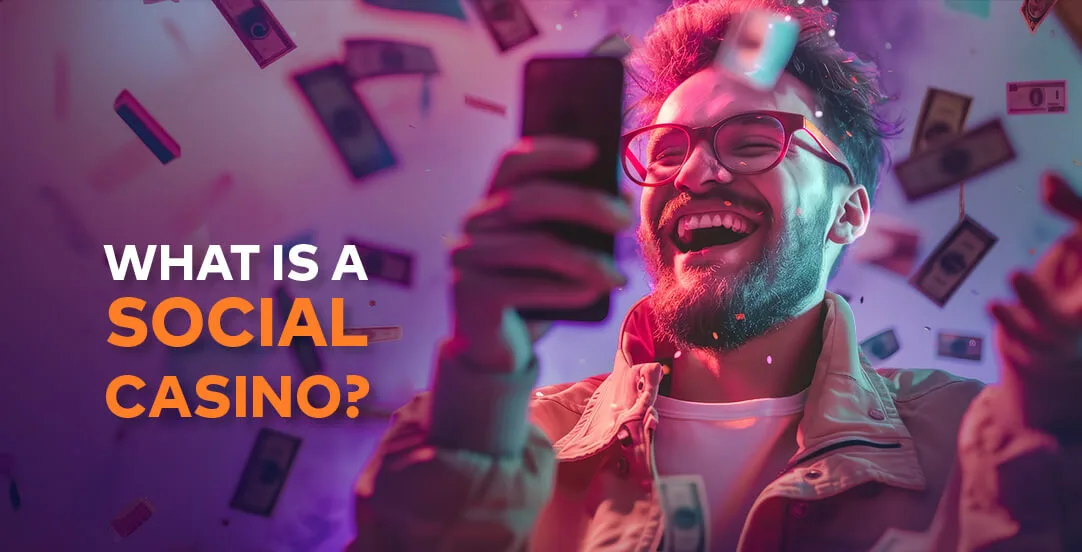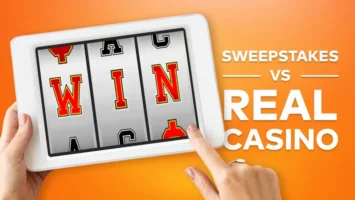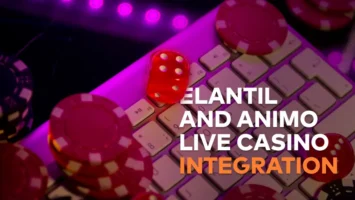What is social casino

Social casinos are online gaming platforms that simulate traditional casino experiences, but instead of wagering real cash, players use virtual currency. They offer familiar games like slots, poker, blackjack, roulette, and bingo, but with coins or tokens that have no cash value. In other words, you can enjoy casino-style games risk-free. As one source explains, social casinos mimic the thrill of real casinos by using virtual credits instead of real-money betting. Players typically log in and receive free virtual chips and may earn more through play or daily bonuses. These coins can also be bought via in-app purchases for continued play, but importantly they cannot be cashed out as real money. The emphasis is purely on entertainment and social interaction, in fact, many social casinos feature friend lists, chat rooms, leaderboards, and tournaments to boost engagement.
Key features of social casinos
Social casinos combine classic casino gameplay with virtual economies and community-based features:
- game variety – players can find almost all casino staples in social form. Popular social casino games include slots, multiplayer poker, blackjack, roulette, bingo, scratch-offs, and more. For example, apps like Zynga Poker or WSOP Social let users play poker against friends with virtual chips, while titles like Slotomania or House of Fun offer colorful slot experiences,
- virtual currency – unlike real-money casinos, social casinos use a closed-loop currency system. New users receive a set of free coins or tokens and can continue playing by earning bonuses or buying more through microtransactions. All betting and payouts are done using this virtual currency. Even big wins result in more coins rather than real money. This freemium model means there’s no risk of losing money, it’s all about playing for fun,
- social play – a defining feature is the strong emphasis on community. Players can invite or challenge friends, send virtual gifts, and compete on global leaderboards. Many social casinos have built-in chat or social media integration, allowing users to share achievements. These social features turn solitary gambling into a shared activity,
- monetization and rewards – to keep players engaged, social casinos often include gamified progression like daily quests, limited-time events, and loyalty programs. They also reward regular logins with bonus credits or free spins. These mechanics are designed to encourage regular play and optional spending.
Social casino vs traditional online casino
Social casinos differ fundamentally from real-money gambling. Here’s a quick comparison:
| Feature | Social casino | Traditional online casino |
|---|---|---|
| Currency | Virtual coins or tokens (no cash-out) | Real money (deposits and withdrawals) |
| Money at stake | None – play is free apart from optional coin purchases | Real money – wins and losses involve real cash |
| Regulation | Often operates under sweepstakes or casual gaming rules | Strict gambling licenses/regulations required |
| Monetization | Freemium – in-app coin sales, ads, VIP subscriptions | House edge (player losses), sports betting, lottery |
| Social features | Built-in: friends lists, chat, tournaments, gifts | Sometimes chat or tournaments, but focused on betting |
| Payouts | No real prizes (except in sweepstakes models) | Real cash prizes and progressive jackpots |
Unlike real-money casinos, players never stake or win actual currency. As one guide puts it, social casino players don’t have to play for real money, making these games fun and risk-free. Some social platforms (often called sweepstakes casinos) even use a dual-currency model. They offer one type of coin for gameplay and another that can be redeemed for prizes or cash. This setup allows them to operate legally in jurisdictions where gambling is restricted, since they fall under sweepstakes laws instead of gambling laws.
Business model and monetization
Social casinos rely on a freemium model. Players can download and enjoy the game for free with basic access. As their virtual currency runs low, they’re given the option to make purchases. Revenue comes from multiple sources:
- in-app purchases – selling additional coins, boosters, or lives. Players spend real money to keep the fun going,
- advertising – many apps display ads or offer bonuses for watching sponsored content. Some also feature brand collaborations,
- subscriptions and VIP passes – recurring memberships can offer perks like daily rewards, exclusive content, or ad-free gameplay,
- sponsored events and tournaments – special events may feature sponsor-backed prizes or branding, adding value for both players and advertisers.
Companies building these platforms often outsource development. For example, createIT provides custom iGaming development services to help scale social casino operations. Businesses may also choose a white-label casino approach, where a full platform is delivered ready-made for branding and marketing. This lets operators focus on user acquisition while technical and regulatory aspects are handled by the provider.
Market trends and growth
The social casino market has experienced consistent growth. Analysts estimate it was worth $8.69 billion in 2024, with projections of $9.33 billion in 2025, and expected to reach $13.57 billion by 2029.
This growth is largely driven by mobile device usage, social media connectivity, and lenient gambling laws in certain regions. Digitalization has made it easier than ever to access casual gaming experiences. Tens of millions of users play these games globally— High 5 Casino alone has around 32 million registered players.
In markets like the U.S. and Canada, social casinos with sweepstakes models thrive due to legal loopholes. Mobile platforms dominate, with more than 80% of gameplay happening on smartphones or tablets.
Popular social casino platforms
Some of the most popular social casino brands include:
- High 5 Casino – a two-time winner of “Top Social Casino,” boasting 32 million users.
- Chumba Casino – known for its legal sweepstakes model and popularity in North America.
- Playtika – creator of hits like Slotomania, House of Fun, and WSOP Social Poker.
- Zynga Poker – among the most downloaded poker apps globally.
- Stake.us – offers a large collection of slots and live-dealer-style social games.
Opportunities and challenges
- opportunities – social casinos can serve as a gateway to real-money gambling platforms. Many industry leaders view them as a marketing channel for future player acquisition. Additionally, they enable behavioral data collection for personalized engagement. Emerging tech like VR or AR could enhance immersion. New gamification strategies and social integrations are constantly reshaping the experience,
- challenges – regulatory scrutiny is increasing. Some courts have questioned whether virtual coins represent “things of value,” which could lead to stricter oversight. Another concern is player retention. Without real money at stake, some users disengage quickly once their free coins run out. Regular updates and creative rewards are essential to keep players returning.
Looking forward, social casinos will likely merge more with mainstream gaming, introducing hybrid formats that include esports or deeper social features. With free, socially driven, game-like casino experiences, they’ve carved a thriving niche in iGaming.




















